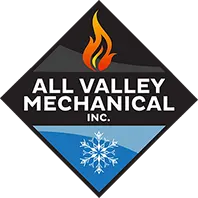As a property owner, finding an efficient and versatile solution to manage your indoor climate is vital for maintaining comfort year-round. Heat pumps offer numerous benefits as a heating solution for both residential and commercial spaces. These multipurpose systems efficiently transfer heat energy between the indoors and outdoors, providing warmth in the winter months and cooling during the summer. By understanding the advantages and capabilities of heat pumps, you’ll see how they can be an ideal choice for new construction, renovations, or HVAC system replacements.
Understanding the Types of Heat Pumps
There are three main types of heat pumps: air-source, ground-source, and absorption heat pumps. Each type is designed to suit specific residential or commercial environments. Understanding the differences between them will help you make an informed decision about which heat pump system best fits your needs.
Air-Source Heat Pumps
Air-source heat pumps are the most common type, transferring heat between the air inside your building and the air outside. These systems are suitable for most climates and can be particularly cost-effective in areas with moderate temperature fluctuations. Air-source heat pumps can work as both a heater and an air conditioner, offering energy-efficient temperature regulation for your property all year round.
Ground-Source Heat Pumps
Also known as geothermal heat pumps, ground-source heat pumps transfer heat between your building and the ground. They take advantage of the relatively stable ground temperature that provides consistent heat transfer regardless of the temperature fluctuations above ground. While these systems are more expensive to install than air-source heat pumps, they offer higher efficiency, resulting in long-term cost savings.
Absorption Heat Pumps
Absorption heat pumps function similarly to air-source heat pumps but utilize an alternative heat source to power the process, such as natural gas, propane, or solar energy. This type of heat pump is more common in commercial or industrial settings, as they can provide an efficient heating solution without relying solely on electricity.
Installation Considerations for Heat Pumps
For optimal performance and efficiency, it’s essential to consider certain factors when installing a heat pump. Our professional technicians take the following into account while designing and implementing your heat pump system:
Sizing
Proper sizing is crucial for your heat pump’s efficient performance. An undersized heat pump won’t heat your space adequately, while an oversized one will consume more energy and be less effective. Our technicians will assess your property and calculate the appropriate size for your heat pump, ensuring maximum efficiency.
Energy Efficiency Rating
A heat pump’s energy efficiency is represented by two ratings: the Heating Seasonal Performance Factor (HSPF) and the Seasonal Energy Efficiency Ratio (SEER). These ratings provide a measure of the system’s performance in heating and cooling modes, respectively. Our technicians will help you select a heat pump with a high efficiency rating to maximize your energy savings.
Proper Location
The location for installing the outdoor component of your heat pump system can significantly impact its noise levels and efficiency. Ideally, the outdoor unit should be placed in a well-ventilated area without direct exposure to harsh weather conditions. Our professionals will help determine the best location for your heat pump to ensure optimal performance and minimal noise disturbance.
Maintaining Your Heat Pump for Efficiency and Longevity
Regular maintenance is essential to keep your heat pump running efficiently and extend its lifespan. Scheduling annual maintenance service with our technicians will help prevent costly breakdowns and ensure that your heat pump continues to function optimally. Our technicians will perform the following maintenance tasks:
- Inspect and clean the coils and air filters to improve airflow and heat exchange efficiency.
- Examine the electrical connections and components for signs of wear and damage.
- Lubricate the bearings and moving parts to reduce friction and prevent wear.
- Check refrigerant levels to ensure proper cooling and heating capacity.
How a Professional Technician Can Help
While heat pumps are a reliable and efficient heating solution, the complexity of their installation and maintenance requires the expertise of a professional. Our technicians are skilled in installing, repairing, and maintaining the various types of heat pumps for residential, commercial, and light commercial properties.
By entrusting your heat pump needs to our experienced professionals, you’ll benefit from expert advice, reliable service, and continued support, ensuring that your heat pump system is running effectively and efficiently for years to come.
Conclusion
Heat pumps are an exceptional heating solution for residential and commercial spaces, offering efficiency, versatility, and energy savings. By understanding the types of heat pumps available, the importance of proper installation, and the value of regular maintenance, you can make an informed decision about the best heat pump system for your property.
Our professionals at All Valley Mechanical are dedicated to providing tailored heat pump installation, repair, and maintenance services to help you optimize your indoor climate, improve energy efficiency, and cut down on your utility costs. Contact us today to discuss your options for heat pumps in Kalispell and let us help you make a smart, energy-efficient investment in your property’s comfort.




